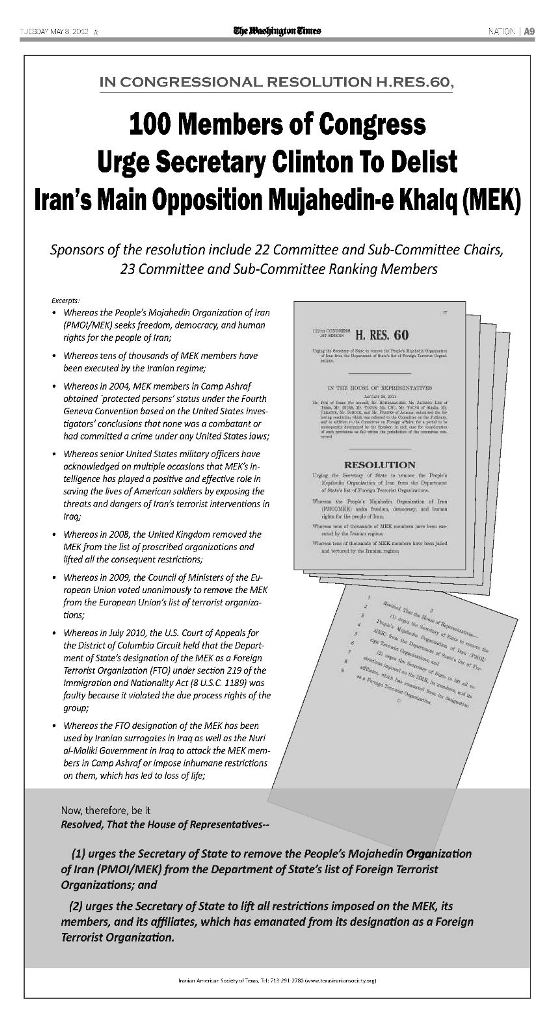In a report about the long-overdue removal of Iran’s main opposition group the People’s Mojahedin Organization of Iran (PMOI), also referred to as the MEK, CNN quoted segments of statement by the NCRI President-elect Maryam Rajavi, regarding the delisting of the MEK, saying:
Maryam Rajavi, head of Mujahedin-e-Khalq and president-elect of the National Council of Resistance, praised the decision Friday.
“I understand that this decision was difficult and required political courage,” Rajavi said in a statement. “This has been the correct decision, albeit long overdue, in order to remove a major obstacle in the path of the Iranian people’s efforts for democracy. For more than a decade, the mullahs made every effort to prevent removal of this designation.
“They do not conceal their anger and disappointment and are trying hysterically to counter Secretary Clinton’s decision with their lobby groups in the United States, the United Kingdom and Europe.
“The people of America and the U.S. Government will realize that, contrary to the campaign of demonization and misinformation orchestrated by the religious fascism ruling Iran, our movement is far removed from all the allegations and accusations churned out by the current Iranian regime, is merely striving for freedom and democracy in Iran, and is campaigning against fundamentalism and export of terrorism,” Rajavi said.
